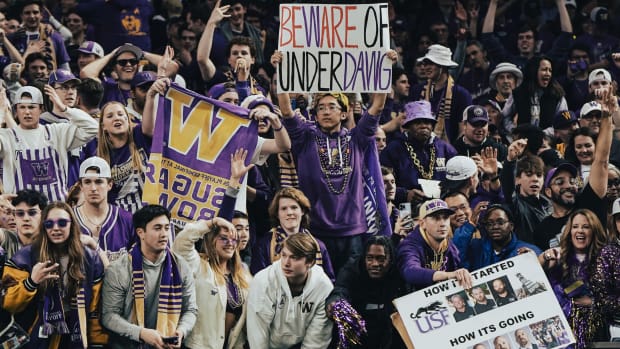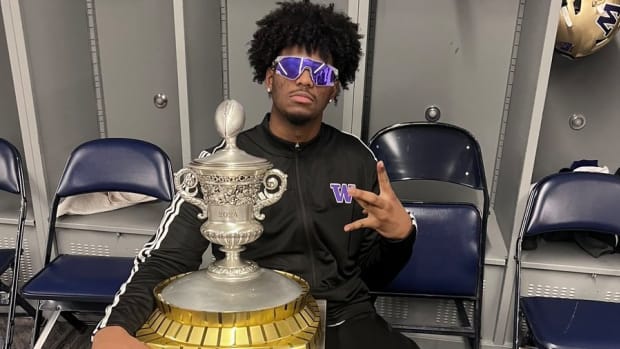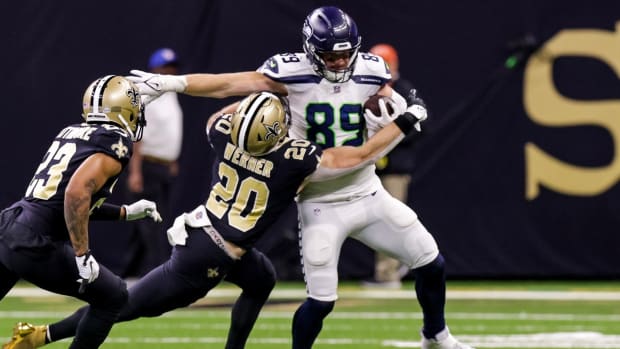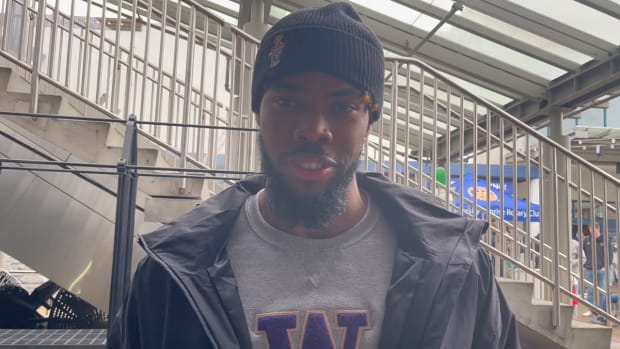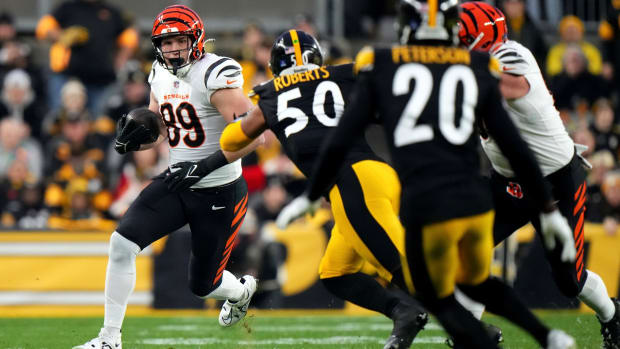Lambright, UW Football Defensive Genius and James Replacement, Dead at 77
Jim Lambright, former University of Washington football head coach and the architect of the Huskies' vaunted "Purple Reign" defense, died of natural causes on Sunday, the school announced. He was 77.
Former linebacker Tim Meamber was one of the leaders of the 1984 defensive unit that was largely responsible for an Orange Bowl victory over Oklahoma, an 11-1 season and a No. 2 ranking in the wire service polls. He immediately turned silent when informed of the coach's passing. Lambright meant a lot to him.
Composing himself, Meamber eulogized a man who could be difficult to deal with at times but was all about teaching toughness and drawing the best performance out of his UW players.
"If we had an offense as good as our defense, Don James would have won six national championships," Meamber, a one-time team captain said. "Jim Lambright was the epitome of Husky football. There was no question in the locker room who was No. 2 in charge."
No cause of death was given, but Lambright had dealt with a variety of health issues in recent years, including bladder cancer and dementia. The school said his passing was not related to the global novel coronavirus pandemic.
For four decades, the Everett, Washington, native was part of the Husky program as a defensive end, an assistant coach, the defensive coordinator and the head coach.
A greatly undersized Lambright played defensive end for the Huskies and coach Jim Owens from 1962 to 1964, earning All-Coast honors and the Guy Flaherty Award as the team's most inspirational player as a senior.
The man known as "Lambo" coached football at Fife High School near Tacoma and Shoreline Community College in the Seattle suburbs. This prepared him to rejoin the Huskies as an Owens assistant coach for six seasons and extend his long association with the program.
"Coach Lambright was a legend at the UW, particularly when it came to playing the kind of physical, aggressive defense that his teams were known for," current Huskies coach Jimmy Lake said in a statement. "He was always supportive of the program that he loved so much. His impact on Husky football will not be forgotten."
When James replaced Owens in 1975, Lambright was the only assistant coach retained on the new staff. He became defensive coordinator in 1978 and he flourished in that role for the next 15 seasons, sharing in six conference championships and a 1991 national championship.
Lambright was named the UW head coach on the eve of the 1993 season when James abruptly stepped down in protest of what he considered were excessive Pac-10 penalties levied on the program. The league limited scholarships and issued a two-year bowl ban for improprieties that involved recruiting visits and offseason jobs.
In 1998, athletic director Barbara Hedges fired Lambright following a 6-6 season that ended with a 45-25 loss to Air Force in the Oahu Bowl.
Lambright admitted that this was the worst possible thing anyone could have done to him.
"You're very human and it happens," he said, "and it hurts so deeply and it's unbelievable."
As the head coach, Lambright compiled a 44-25-1 coaching record, guided the Huskies through the probation period and his teams supplied the program with several milestone moments.
The Huskies ended Miami's 58-game home win streak in 1994. They won a Pac-10 championship in 1995. They finished 9-3 and routed Nick Saban's Michigan State team 51-23 in the 1996 Aloha Bowl.
Lambright, in this 2007 Seattle Post-Intelligencer story, told how he and Hedges battled throughout his time as the Huskies head coach. He was aware that a group of alums had grown dissatisfied with his leadership and they forced the athletic director's hand to remove him.
"It's what money and power can do," he said. "She was raising money for facilities and they were going to put the money on hold."
Hedges told Lambright she wanted to go in a new direction and replaced him with Rick Neuheisel, who was fired after four seasons for a booster-involved betting scandal, as were the following coaches, Keith Gilbertson and Tyrone Willingham, as the program nosedived. The Huskies went through seven consecutive sub-.500 or break-even seasons.
Lambright insisted the darkest days of Washington football -- which included 1-10 and 0-12 seasons -- never would have transpired had he not been let go.
"I think that's true," he said. "With what happened to Husky football, I can look at it and I can say I'm proud of our record and the successes we had, of the players who went to the pros and of those who went on to get their degrees. Two years after we left, they ended up in the Rose Bowl."
